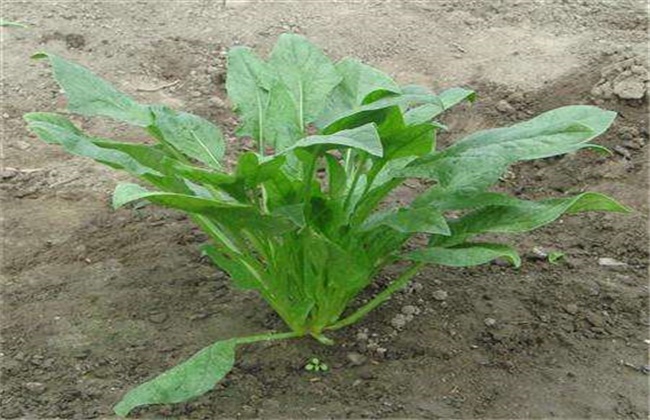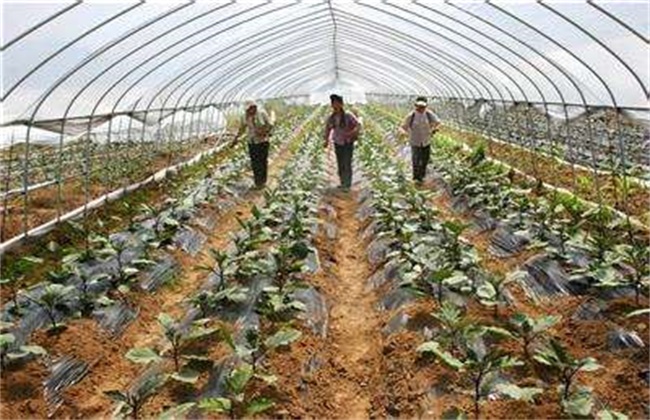Cabbage field management techniques
After cabbage is planted, the most important thing is field management throughout the growing period. It is necessary to take specific measures according to the various characteristics of cabbage to promote the growth of cabbage and improve its edible value. In fact, it is to artificially regulate the relationship between each period and the growth demand. There are about the following points about field management.

I. Irrigation
Cabbage is a leafy vegetable, and the most important thing for leafy vegetables is to keep moisture above ground. Because there are many leaves, there must be a great deal of water consumption by transpiration every day, so the soil needs to maintain a certain amount of water storage in real time. In addition to natural rainfall, artificial irrigation is often needed, and drip irrigation can be laid in the field for planting in large areas. Watering the next day before emergence, keeping moist, promoting seed germination; watering in time after emergence is beneficial to root growth and stable growth; water demand in the leaf curling stage is much more than that in the seedling stage, and a large amount of irrigation is needed; when you begin to wrap the core, you will need the most water to promote the growth of the leaf, and then the need for water will gradually increase or decrease, until the completion of the core should gradually reduce watering to prevent the leaf ball from absorbing water and cracking.
Second, topdressing
In addition to applying sufficient basal fertilizer before sowing, cabbage should be topdressing separately in each growth period in order to meet different growth requirements. In the seedling stage, some plant ash is generally needed as potassium fertilizer to strengthen the root system and stabilize the plant growth. At the same time to apply some nitrogen fertilizer, but all need to use a small amount of water for many times to avoid the root system can not absorb. At the beginning of leaf rolling, a large amount of nitrogen fertilizer is needed to promote leaf growth and photosynthesis to produce nutrients. The maximum fertilizer demand period is the heading period, when 30 jin of urea per mu can be applied to meet the growth.
Third, temperature and light
During the whole period, the temperature had better be kept between 20 and 30 degrees, which can grow well. Open field planting can use power cord and retting fertilizer to adjust the temperature. Facility cultivation is much more convenient. In general, the light conditions suitable for the growing period can be satisfied, and can be adjusted manually under unsuitable conditions.
Fourth, prevention of diseases and insect pests
Generally pay attention to stunting disease at the seedling stage, and spray carbendazim in time as soon as it is found. In the later stage, you need to pay attention to the harm of slugs, you can sprinkle salt and ginger powder near the plant to avoid approaching. When it is found that cabbage insects should be sprayed with Bo.t. Emulsion or No. 6 liquid agent of cyanobacteria for control.
The most important thing for the cultivation of curly heart is to do a good job in field management, which is generally through the above measures to control the growth and development of cabbage at all stages. If you want to grow cabbage well, you should take it seriously and maintain it carefully.
Related
- Where is it suitable to grow horseradish in China? it is expected to see the middle altitude horseradish in Alishan.
- How to prevent tomato virus disease reasonably? (Control methods included)
- Many people like to plant towel gourd on the balcony. What are the main points of this method and management?
- What crops can chili peppers be mixed with?
- Fertilization techniques and matters needing attention in Tomato
- What are the grafting techniques for peach seedlings in spring?
- Harm and control methods of root swelling disease of Chinese cabbage
- What are the pests of sweet potatoes? How to prevent and cure it?
- Symptoms, causes and Control methods of navel Rot in Tomato
- The cause of "Cucumber rotten bibcock" in Farmers' planting Cucumber and its Control Plan



